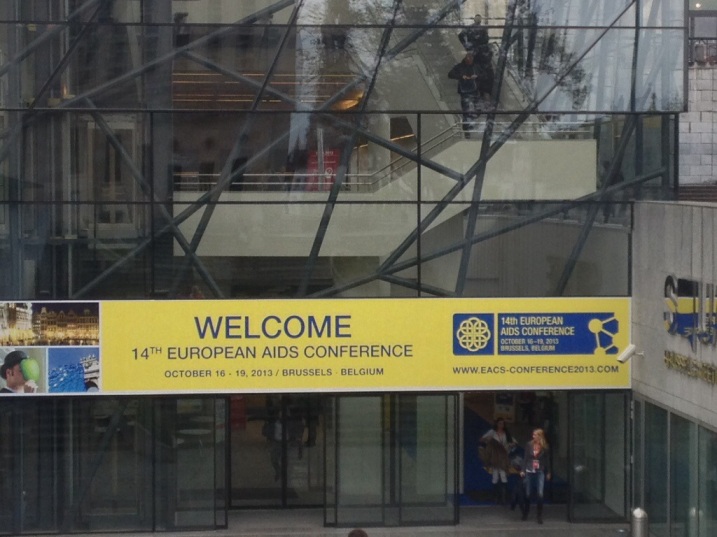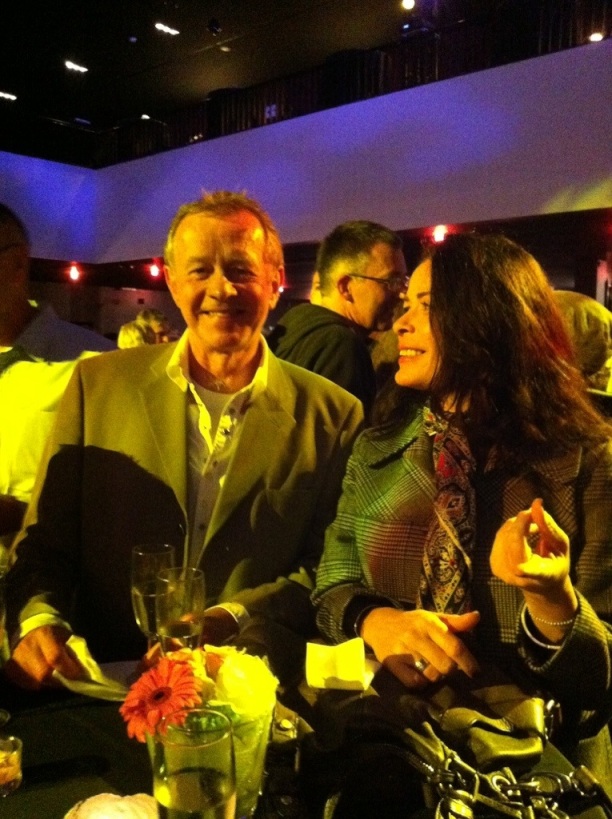In Europe there are an estimated 2,3 million people living with HIV according to UNAIDS and WHO. Most astonishingly 50% of those who have HIV have not been tested. Around 60% live in Eastern Europe and Central Asia and acquire HIV through injecting drugs. The vast majority of people living with HIV in this region are still not accessing appropriate treatment and care for HIV, hepatitis C, TB or drug use.
Those are just some of the facts I learnt while in Brussels, where I attended the 14th European AIDS conference.
Addressing such a complex situation, and immense challenges cannot be done without using a wide spectrum of resources, and especially the expertise of those who are most affected: people living with HIV and key populations. Sadly, I was a bit disappointed by the level of community involvement featured throughout this European Aids Conference.
From the opening ceremony it was quite clear that people living with HIV were not going to be on centre stage.
At least the European AIDS conference released a statement officially asking the Russian government to abolish the appalling laws that discriminate against homosexuality.
EACS statement announced: “We are concerned that these provisions not only affect basic human rights, but also result in harmful public health policy since they add to the already-existing barriers related to HIV prevention, diagnosis, access and retention in care [….] The legal framework in States should do everything to reduce stigmatisation.”
Professor Michel Kazatchkine, the UN Secretary-General’s Special Envoy on HIV/AIDS in Eastern Europe and Central Asia., also spoke at the opening highlighting the complexity of Eastern European and Central Asia epidemic which he described as a quadruple epidemic: HIV, TB, Hepatitis C and drug use. He also stressed that the governments of the region hold a huge responsibility in terms of scaling up treatment, including harm reduction and access to HIV and HCV medications, TB treatment to all and especially the most affected populations of people who inject drugs, who are still heavenly marginalised and denied not only HIV and HCV drugs but access to clean needles, opiate substitution and rehabilitation a services.
It is also very important to consider that intervention to support women who use drugs and live with HIV need to take into account the real lives of women, and how our roles and gender inequality can impact on us accessing health and rehabilitation services.
I think the call would have been much stronger if also someone living with HIV from one of the key populations of the most affected countries, like Russia and Ukraine, would have been on stage. I just cannot believe that over 20 years after the commitment to Greater Involvement of People Living with HIV from all UN countries, we still do not see it happen at all levels, and especially at such an important conference.
Community Involvement
The organization of people living with HIV that is mostly involved in the planning of this conference is the European AIDS Treatment Group (EATG).. It is a group to which many activists which I love and respect belong. They do really good work holding European Governments to account on issues of access to treatment and care. However, sadly, it is still a little bit what I call a ” Boys’ Club” and the representation of women and African migrant communities is still minimal. No wonder that gender issues were poorly represented at the conference. I hope we can work together to change this and that WECARE+ (Women in Europe and Central Asia Region Living with HIV) may be involved in the planning of the next conference. It is a bit of a dream since WECARE+ has struggled to secure any funding, since we set it up in 2010, but I will hold on to it.
EATG ran a really good community led session about Standards of Care in Europe. It was really shocking to learn that the economic crisis is making many countries ‘reverse’ instead of moving towards Universal Access. For example, in Spain if you are long term unemployed and do not have access to social security you may lose your entitlement to free health care. Because the extremely high level of unemployment this is really worrying. Moreover undocumented migrants are denied access to treatment, not only in Spain but also in many Scandinavian countries. This really shocked me, as a Southern European I thought that Scandinavia would be more socially aware and compassionate. In countries like Portugal in some hospitals people have to go and pick up their medications every 15 days because of stock outs. The presentation I enjoyed most was by Olga Stefanishina. Olga spoke of the work of the Ukrainian Community Advisory Board, who fights tirelessly to hold Ukrainian government to account , challenge widespread corruption, and ensure a greater access to HIV treatment and care.
Overall the community session was really good, but I think that community involvement should not be encased to a nice little slot, but it should be throughout all conference sessions., as it happens at the IInternational AIDS Conference. I also feel that this conference would benefit from a greater focus on social sciences and policy. Addressing the HIV Epidemic in Europe is not just about deciding which are the best ARV’s for us to swallow; we also need to take into account the wider socio-economic and political contexts.
For more extensive and in-depth coverage of the conference:NAM website.


